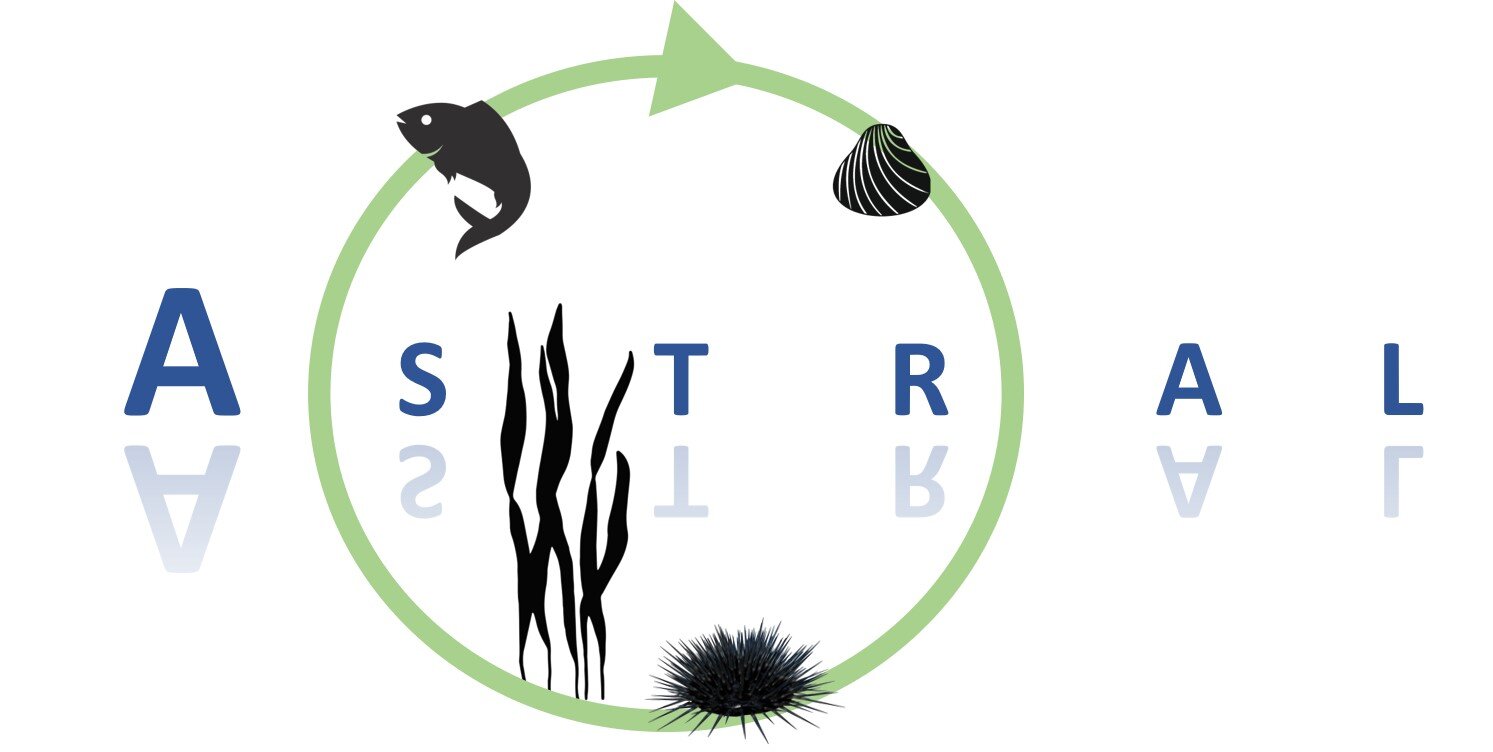Sensor-based Precision Aquaculture
Aquaculture is a key source of animal protein, leading to worldwide investment in a rapidly increasing sector. Tight control of production parameters and appropriate monitoring of environmental challenges are critical elements towards competitive, sustainable and profitable aquaculture processes.
ASTRAL technology takes a step further to mitigate the aquaculture production risks where a Digital Twin framework creates virtual representations of the aquaculture assets to enable target day-to-day recommendations. The real-time "sensing and making sense of data" approach offers unprecedented data, feedback and control loop to producers.
The ASTRAL project is developing an Artificial Intelligence Data Analytics Platform (AIDAP) to support decision-making on Integrated Multi-Trophic Aquaculture (IMTA). Work is currently underway to validate IoT low-cost sensors, novel vision devices and A.I. data models at a few IMTA facilities that are enhanced to promote aquaculture sustainability and profitability.
The expected outcome includes producer-grade information on water quality essential parameters (pH, dissolved oxygen and temperature), animal growth behaviour analysis, early detection of harmful algae blooms and the presence of micro-plastic as one of the emerging pollutant threats.
The ASTRAL "pool of technologies" builds upon the state-of-the-art developments from cross-discipline research to deliver technological aids in optimising IMTA aquaculture production at a reduced environmental impact. The approach brings a digital twin transformation to lower the investment risks in IMTA aquaculture.
The IoT kits will provide long-range communication and optimised self-powering capabilities to monitor standard physicochemical parameters. Novel sensing devices will enable a behavioural analysis of bivalve molluscs as sublethal and sensitive indicators of water quality conditions based on A.I. modelling. Biomass estimation based on computer-vision techniques and off-the-shelf cameras will provide real-time animal growth rates to support decision-making on harvesting and feeding.
Early detection of emerging pollutants such as microplastics and HABs plays an essential role in ensuring end-product quality and production cycle safety. The ASTRAL project integrates cost-effective imaging particle sensors and deep learning algorithms to monitor microplastics and HABs in real time. The AIDAP links together time-series data from multiple sensors installed at different IMTA lab locations into an AI-based infrastructure to generate human-readable outputs for aquaculture based on data-driven models. The project outcome will provide precise control of production parameters to implement better routines and efficient practices. The main environmental challenges will also be monitored through an integrated A.I. platform validated in relevant environments to promote aquaculture sustainability and profitability. The ASTRAL pool of technology combines both emerging developments and state-of-the-art from cross-discipline research as key elements to reduce environmental impact, diversify and optimise aquaculture production and lower the investment risks in IMTA labs.
However, common aquaculture challenges associated with production loss, human illness, and economic impact may include increased risk of diseases, harmful algae blooms (HABs), emerging pollutants, changes in water temperature, hypoxia, and ocean acidification.
Authors: Bruna Guterres, Research Assistant at the Federal University of Rio Grande
Marcelo Pias, Associate Professor at the Federal University of Rio Grande
(ASTRAL Technology Work Package)

